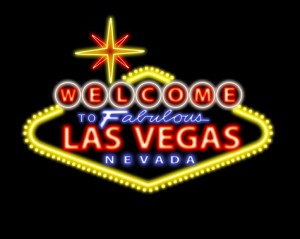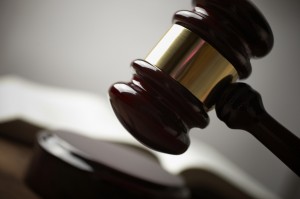 Currently, under Virginia law the surviving spouse can collect both from the insurance company for the life insurance proceeds and from the tortfeasor. This can be remedied by allowing subrogation of life insurance claims where negligence occurred causing the death of the insured. Furthermore, insurers could begin placing a subrogation clause in the life insurance contracts of the insured to lay the foundation for future subrogation claims.
Currently, under Virginia law the surviving spouse can collect both from the insurance company for the life insurance proceeds and from the tortfeasor. This can be remedied by allowing subrogation of life insurance claims where negligence occurred causing the death of the insured. Furthermore, insurers could begin placing a subrogation clause in the life insurance contracts of the insured to lay the foundation for future subrogation claims.
Life Insurance Subrogation: Benefits Too Remote? (Part 3)
 The degree of attenuation between the amount paid out under a life insurance policy and the potentially limitless value of life presents another counter argument to allowing life insurance subrogation in Virginia. One of the conditions precedent in allowing a subrogation action is the recompense of the insured. However, how can an insurance company put a value on life? It can be credibly argued that the courts place a value on life all the time in the form of wrongful death settlements and verdicts. Furthermore, an insurance company’s payment of the pre-determined amount under the policy should be viewed as “making whole” the insured.
The degree of attenuation between the amount paid out under a life insurance policy and the potentially limitless value of life presents another counter argument to allowing life insurance subrogation in Virginia. One of the conditions precedent in allowing a subrogation action is the recompense of the insured. However, how can an insurance company put a value on life? It can be credibly argued that the courts place a value on life all the time in the form of wrongful death settlements and verdicts. Furthermore, an insurance company’s payment of the pre-determined amount under the policy should be viewed as “making whole” the insured.
This may be one of the trickiest needles to thread in the argument for allowing life insurance subrogation in Virginia. Many people would be uncomfortable positing the payment of a term-life insurance policy as the value of the insured’s life.
Life Insurance Subrogation: Investment or Indemnity? (Part 2)
 The bedrock of subrogation is the concept of indemnity, that is, the act of stepping in to collect a definite, cognizable amount of money, an insurer paid on behalf of another. One of the major arguments against allowing life insurance subrogation is that life insurance is, in essence, an investment vehicle rather than an indemnity payment.
The bedrock of subrogation is the concept of indemnity, that is, the act of stepping in to collect a definite, cognizable amount of money, an insurer paid on behalf of another. One of the major arguments against allowing life insurance subrogation is that life insurance is, in essence, an investment vehicle rather than an indemnity payment.
For instance, in an automotive subrogation case the insurer pays out a certain amount of money based upon the repair bills, rental car expenses and medical bills. However, in life insurance there is a pre-determined amount of money paid out to the insured’s estate triggered by the policyholder’s death. This occurs no matter what the circumstances of the death were, barring suicide of course. There should be a distinction made between short term, or “term life” policies and long-term life insurance policies. the former are more of a hybrid between investment and indemnity, whereas long-term life insurance policies resemble investment vehicles.
Life Insurance Subrogation: What's the Difference Between Conventional and Equitable Subrogation? (Part 1)
 The possibility of life insurance subrogation actions arising in Virginia are, admittedly, remote. However, after reading George Swan’s article entitled “Subrogation in Life Insurance: Now Is The Time”, with the right facts and an appropriately written term life insurance policy, there just might be chance to cultivate this new vine from the long established subrogation soil. Swan published this article in the Insurance Counsel Journal almost 31 years ago, so the clarion call of the author carries with it an unintended irony. Nevertheless, his cogent examination and discussion of the pitfalls, whether real or perceived, governing life insurance subrogation should not be discounted. Before jumping into the four core problems facing a litigator attempting a life insurance subrogation action, the difference between contractual, or conventional subrogation, and equitable subrogation should be discussed.
The possibility of life insurance subrogation actions arising in Virginia are, admittedly, remote. However, after reading George Swan’s article entitled “Subrogation in Life Insurance: Now Is The Time”, with the right facts and an appropriately written term life insurance policy, there just might be chance to cultivate this new vine from the long established subrogation soil. Swan published this article in the Insurance Counsel Journal almost 31 years ago, so the clarion call of the author carries with it an unintended irony. Nevertheless, his cogent examination and discussion of the pitfalls, whether real or perceived, governing life insurance subrogation should not be discounted. Before jumping into the four core problems facing a litigator attempting a life insurance subrogation action, the difference between contractual, or conventional subrogation, and equitable subrogation should be discussed.
What is the difference between conventional (contractual) subrogation and equitable subrogation?
Swan does a good job delineating the differences, in both mechanics and the treatment received under the law, between conventional and equitable subrogation actions. Conventional subrogation, the type my firm regularly litigates in Virginia General District Court and Circuit Courts across the state, is “premised upon an express agreement between the parties and is governed by contract law principles.” In such circumstances, the insurer can be subrogated to the rights of its insured to seek compensation from the third-party tortfeasor. This is the most common type of insurance subrogation.
Subrogation by operation of law is founded upon equitable principles. The insurer obligates himself to pay a debt for which another party is liable. Since subrogation rights are always expounded in the insurance contracts governing coverage, in Virginia subrogation cases are almost always of the “conventional” type. Despite the different “theories” of subrogation, both are founded on the principle that the insurer suffers a fixed financial loss and the insurer seeks to collect from both the tortfeasor and the insurance company would allow him a “windfall.”
Pawn Stars Explores Subrogation!

It is rare that a topic like insurance subrogation comes up in popular culture, but in a recent Pawn Stars episode tangentially touched on the topic. In the episode titled “Shekel and Hyde” the pawn shop owners bought a Shekel of Tyre coin. Shekel coins were a common currency used in biblical times. Of course, considering their age they are relatively rare today. The owners purchased the coin and sent it out for appraisal. Shortly thereafter, they discovered that the coin had been reported stolen by the original owner. Apparently the man who sold it to them had purchased it in good faith from a previous seller. Tensions rose as the owners waited to hear back from the police whether they had to return the stolen coin back to the original owner, despite having purchased it in good faith. Luckily for the pawn shop owners the owner had been compensated by his insurance company so the title to the coin was ostensibly clear. Or was it? Let’s explore whether the Pawn Stars had a right to keep the coin in light of the actual mechanics of subrogation law.
In reality, the insurance company could step into the shoes of their insured through a subrogation action and sue for the return of the coin or its equivalent cash value. This episode presented a classic subrogation fact pattern and helped illustrate the common misunderstanding concerning insurance and subrogation law throughout society. Most people think that once an insurance company pays out a claim they have no further rights to pursue the tortfeasor or wrong-doer.
No Nonsuit After Defective Signature

In a recent Norfolk Circuit Court case the judge ruled that a lawyer’s missing signature from the Complaint prevented them from taking a nonsuit, since the defective Complaint was not a “validly pending proceeding.” In this particular case, the the plaintiff’s signature appeared on the Complaint, but the attorney’s signature was not endorsed above their printed name.
This recent ruling is a poignant reminder for those Virginia subrogation attorneys and other plaintiff attorneys that any defective complaint can jeopardize a nonsuit. The strategic value of a nonsuit, the peculiar remedy in Virginia allowing the plaintiff to dismiss a claim voluntarily and thereby toll the statute of limitations by six months, cannot be overstated. When a case like this comes along it reinforces the need for close scrutiny of all pleadings, but especially complaints, as an innocent error can result in a statute of limitations problem and future bar complaints and ethics litigation.
Interview with Carrier is Protected Work Product
 A recent ruling by the Prince William County Circuit Court declared that interviews by carriers with their insured regarding an auto accident fall within the shield provided by the “work product” doctrine of supreme Court Rule 4:1(b)(3). The Virginia Court of Appeals upheld the decision. Plaintiff’s motion to compel was denied for several reasons.
A recent ruling by the Prince William County Circuit Court declared that interviews by carriers with their insured regarding an auto accident fall within the shield provided by the “work product” doctrine of supreme Court Rule 4:1(b)(3). The Virginia Court of Appeals upheld the decision. Plaintiff’s motion to compel was denied for several reasons.
First, the court stated that the “work product” doctrine “protect[s] not only materials gathered by or for counsel in anticipation of litigation, but materials gathered by or for others, including the liability insurance carrier.” Furthermore, the court cited Veney v. Duke for the proposition that discussions of third party coverage is protected by the “work product” doctrine, and extended that logic to discussions of first party coverage. Finally, since the case at bar involved an insured who plead guilty to a traffic infraction and contested liability in a subsequent civil case, the court stated that the affirmative duty of defense counsel to prevent his client from testifying to a known falsehoods “offers sufficient protections.”
This ruling has important ramifications for Virginia subrogation attorneys, insurance defense firms and personal injury attorneys. For the Virginia subrogation attorney, this ruling confirms an intuition long held, that those conversations by insurance adjusters regarding third party coverage should be protected under Virginia’s “work product” doctrine. Insurance defense firms facing Virginia subrogation firms should expect to be stymied by this latest ruling when issuing subpoenas duces tecums in the future.
Justin McLeod
Virginia Texting Law May Need Tweaking
 A case in Fairfax General District Court, heard before Judge Thomas E. Gallahue, underscores the need for the Virginia General Assembly to overhaul the Reckless Driving code section to explicitly include texting while driving. In the case Judge Gallahue dismissed the reckless driving charge against Jason Gage since the statute in question, VA Code section 46.2-852 et seq. This issue directly affects Virginia Subrogation attorneys, who routinely use the convictions or pleas of guilt to driving offenses as evidence in the case against defendant drivers.
A case in Fairfax General District Court, heard before Judge Thomas E. Gallahue, underscores the need for the Virginia General Assembly to overhaul the Reckless Driving code section to explicitly include texting while driving. In the case Judge Gallahue dismissed the reckless driving charge against Jason Gage since the statute in question, VA Code section 46.2-852 et seq. This issue directly affects Virginia Subrogation attorneys, who routinely use the convictions or pleas of guilt to driving offenses as evidence in the case against defendant drivers.
The case in question arose from Jason Gage allegedly reading texts while driving, according to Gage’s cellular records, which show he received several text messages around the time of the accident. Kyle Alec Rowley, only 19 years of age, was fatally struck by Gage’s car when his car was parked in the right travel lane after ceasing to operate. Rowley’s hazard lights were illuminated and the car in front of Gage successfully navigated around Rowley’s vehicle, but Gage struck the rear of Rowley’s vehicle, killing Rowley.
According to police there were no signs of excessive speed or driving under the influence to account for Gage’s accident, which led them to investigate his cellular records. The police did not think to charge Gage under VA Code 46.2-1078.1, which levies a $20 fine for texting while driving. Since the reckless driving statutes do not include provisions proclaiming texting or talking on a cell phone “reckless” Judge Gallahue stated he had to dismiss the charge.
There is a strong argument that amending the reckless driving statutes to include a provision for texting while driving will send a strong message to Virginia drivers to cease texting while driving. There have been numerous studies demonstrating texting while driving exponentially increases the likelihood of an accident. For the Virginia Subrogation attorney having a clearly written, inclusive reckless driving statute makes prosecuting subrogation claims easier to prove in court, since a conviction or admission would demonstrate prima facie negligence on the part of the defendant.
2012 NASP Conference
 The annual NASP conference is taking place in Las Vegas this year, November 11th through the 14th. To learn more about the upcoming subrogation conference click here.
The annual NASP conference is taking place in Las Vegas this year, November 11th through the 14th. To learn more about the upcoming subrogation conference click here.
Don’ miss out, check out the NASP website for information on booking and sponsorship.
New VA Evidence Rule 2:411 Affects Litigation
 There is a long-standing doctrine at common law known as the “collateral source” rule. Virginia codified this in VA Code § 8.01-35, which states:
There is a long-standing doctrine at common law known as the “collateral source” rule. Virginia codified this in VA Code § 8.01-35, which states:
In any suit brought for personal injury or death, provable damages for loss of income due to such injury or death shall not be diminished because of reimbursement of income to the plaintiff … from any other source, nor shall the fact of any such reimbursement be admitted into evidence.
The collateral source doctrine arose to bar defense attorneys from raising the fact at trial that plaintiffs were compensated for their injuries or lost wages arising out of an injury. The public policy reason being that to do so could sway the jury and, in effect, punish the victim for carrying insurance and observing their social responsibility. The vast majority of the time the collateral source doctrine arises in personal injury actions or medical malpractice litigation. So how does the collateral source rule affect the Virginia subrogation attorney?
In the typical subrogation case involving an automobile accident the policyholder is the witness for the plaintiff (the insurance company) and the defendant is uninsured and testifying on their own behalf. The policyholder has been compensated for their loss and the vast majority of the time has nothing to gain or lose by the outcome of the case. They are merely acting as a witness. However, for the defendant the case can have major consequences, both financial and personal. Therefore, sometimes in a “he said, she said” case it can be prudent to point out to the trier of fact that the plaintiff’s witness has nothing to gain by their testimony, while the defendant has something to lose, sometimes a lot.
This can sometimes run into an objection by defense counsel if the opposing party is represented, citing the collateral source rule, or the judge, sua sponte , will express misgivings about bringing up the fact that one witness was compensated under an insurance policy. There is a strong argument that under current case law the collateral source doctrine does not apply to most property damage cases since the statute expressly refers to “suit brought for personal injury or death”, but there is a common misconception that the common law and the statute act as an absolute bar.
The new Virginia Rules of Evidence put any confusion to rest, however, in the text of Rule 2:411 “Insurance”:
Evidence that a person was or was not insured is not admissible on the question whether the person acted negligently or otherwise wrongfully, and not admissible on the issue of damages. But exclusion of evidence of insurance is not required when offered for another purpose, such as proof of agency, ownership, or control, or bias or prejudice of a witness.
When read in conjunction with VA Code § 8.01-35 it is clear that evidence of an insurance policy can be admitted into evidence to demonstrate the objectivity or bias of a witness. Therefore, the Virginia subrogation attorney can point out to the trier of fact that the policyholder has nothing to lose or gain by the outcome of litigation. Most of the time judges will make this connection on their own, but in close cases it can help to tip the scales to that crucial 51% needed for the “preponderance of the evidence” standard required.
We will continue to analyze the new Virginia Rules of Evidence to evaluate their impact upon subrogation litigation in Virginia, stay tuned.
